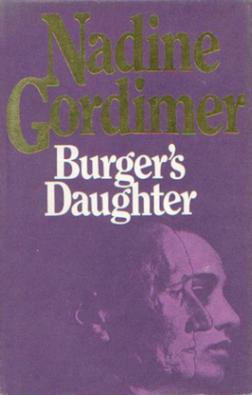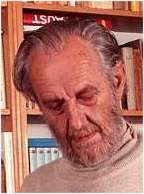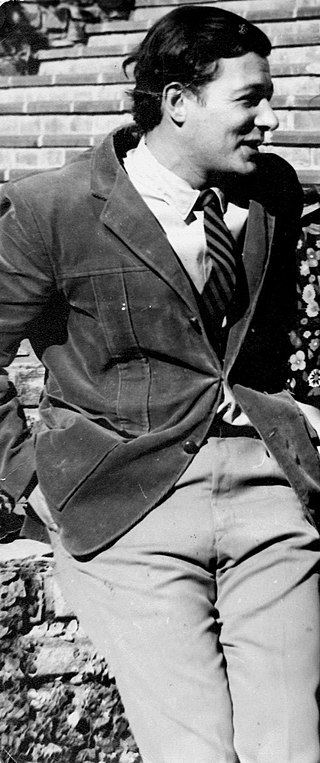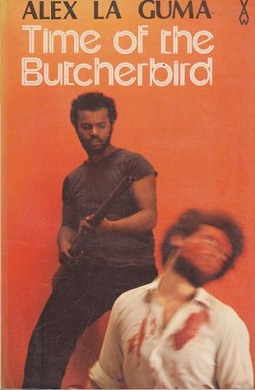Related Research Articles

Breyten Breytenbach is a South African writer, poet and painter known for his opposition to apartheid, and consequent imprisonment by the South African government. He is informally considered as the national poet laureate by Afrikaans-speaking South Africans. He also holds French citizenship.
Athol Fugard, Hon., , is a South African playwright, novelist, actor, and director widely regarded as South Africa's greatest playwright. He is best known for his political and penetrating plays opposing the system of apartheid and for the 2005 Oscar-winning film of his novel Tsotsi, directed by Gavin Hood.

District Six is a former inner-city residential area in Cape Town, South Africa. Over 60,000 of its inhabitants were forcibly removed during the 1970s by the apartheid regime.
Alex La Guma was a South African novelist, leader of the South African Coloured People's Organisation (SACPO) and a defendant in the Treason Trial, whose works helped characterise the movement against the apartheid era in South Africa. La Guma's vivid style, distinctive dialogue, and realistic, sympathetic portrayal of oppressed groups have made him one of the most notable South African writers of the 20th century. La Guma was awarded the 1969 Lotus Prize for Literature.

Burger's Daughter is a political and historical novel by the South African Nobel Prize in Literature-winner Nadine Gordimer, first published in the United Kingdom in June 1979 by Jonathan Cape. The book was expected to be banned in South Africa, and a month after publication in London the import and sale of the book in South Africa was prohibited by the Publications Control Board. Three months later, the Publications Appeal Board overturned the banning and the restrictions were lifted.

South African literature is the literature of South Africa, which has 11 national languages: Afrikaans, English, Zulu, Xhosa, Sotho, Pedi, Tswana, Venda, Swazi, Tsonga and Ndebele.

Peter Rudolf Gisela Horn was a Czech-born South African poet. He made his mark especially with his anti-Apartheid poetry. At the end of World War II he had to flee from his home and settled with his parents first in Bavaria and later in Freiburg im Breisgau, where he completed high school in 1954. He then emigrated with his parents to South Africa.
Miriam Tlali was a South African novelist. She was the first black woman in South Africa to publish an English-language novel, Between Two Worlds, in 1975. She was also one of the first to write about Soweto. Most of her writing was originally banned by the South African apartheid regime.

Joseph-Achille Mbembe, known as Achille Mbembe, is a Cameroonian historian, political theorist, and public intellectual who is a research professor in history and politics at the Wits Institute for Social and Economy Research at the University of the Witwatersrand. He is well known for his writings on colonialism and its consequences and is a leading figure in new wave French critical theory.
Richard Moore Rive was a South African writer and academic, who was from Cape Town.
Martin Legassick (1940–2016) was a South African historian and Marxist activist. He died on 1 March 2016 after a battle with cancer. He was one of the central figures in the "revisionist" school of South African historiography that, drawing on Marxism, revolutionised the study of the social formation of Apartheid by highlighting the importance of political economy, class contradictions and imperialism. He was also a key figure in the independent left in South Africa from the 1970s, and a critic, from the left, of many of the analytical and strategic positions taken by the African National Congress and the South African Communist Party, as well as their understanding of South African history. The author of numerous books, mainly on the history of colonialism and capitalism, he collected many of his key political writings in his 2007 book Towards Socialist Democracy.

Philippe-Joseph Salazar, a French rhetorician and philosopher, was born on 10 February 1955 in Casablanca, then part of French Morocco. Salazar attended the Lycée Louis-le-Grand a prestigious secondary-school in Paris before studying philosophy, politics and literature at the École Normale Supérieure. Since 1999 Salazar is a Distinguished Professor in Rhetoric in the Faculty of Law at the University of Cape Town, South Africa. Salazar's lifelong achievements made him the recipient of Africa's premier research award in 2008, the Harry Oppenheimer Fellowship Award. In 2015 he received a prestigious French literary prize for political non-fiction, Prix Bristol des Lumières, for his book on the rhetoric of jihadism: Paroles armées (2015), translated in four languages.

Alfred John WannenburghIII was a South African author, journalist, conservationist, and anti-apartheid activist from Cape Town. His early political writings which began in 1961/62 cemented his career as a left-wing protest writer in the radical pan-African literary scene and led him, Richard Rive, and Jan Hoogendyk to form what Grant Farred called the "Western Cape Protest School" constituted by Wannenburgh, Rive, Alex La Guma, and James Matthews—who occasionally met at Hoogendyk's Rondebosch home. Wannenburgh attended both Rondebosch Boys' Preparatory School and Rondebosch Boys' High School and received his undergraduate degree in Cultural Anthropology, African History, and Political Philosophy from the University of Cape Town (UCT). His career in journalism began in 1961 and ended in 2010. He worked for many years as a foreign correspondent or stringer for America's Associated Press and Britain's The Guardian. Domestically, he was also a columnist, feature writer, and sub-editor for the Cape Times, Weekend Argus, and Sunday Times in particular, from 1984 to 2010, while taking several research sabbaticals in-between.
Cosmo George Leipoldt Pieterse is a South African playwright, actor, poet, literary critic and anthologist.

Trafalgar High School is a public English medium co-educational secondary school in District Six of Cape Town in South Africa. It was the first school built in Cape Town for coloured and black students. The school took a leading role in protesting against apartheid policies. It celebrated its centenary in 2012 and is still running.
The Stone-Country is a 1967 novel by South African novelist Alex La Guma. The novel is set in a prison, and explores how one prisoner inspires others to pursue anti-apartheid politics. It was the last novel La Guma was able to write before his exile from South Africa. The novel was later republished as part of the influential African Writers Series in 1974.
In the Fog of the Seasons' End is a 1972 novel by South African novelist Alex La Guma. Like many of La Guma's other novels, it is focused on challenging the social systems of apartheid in South Africa. The main character in the novel, Beukes, is an organizer of an anti-apartheid underground. The novel was dedicated to Basil February and other resistance fighters who died in Zimbabwe in 1967. The novel has been extensively explored as part of marxist literary criticism, while reflecting on La Guma's marxist political philosophy.

A Soviet Journey is a 1978 travelogue by South African socialist Alex La Guma. Writing in the early 90s, critic Roger Field described the book as one of the under examined works from La Guma's corpus, because of his reputation as a fiction writer first, and the political nature of Western academics commenting on a book title "Soviet" during the Cold War.

Time of the Butcherbird is the final novel by South African novelist Alex La Guma. The novel was first published in 1979.
Dugmore Boetie is the pen name of South African journalist, writer, and musician, Douglas Mahonga Buti. He is best known for Familiarity is the Kingdom of the Lost, or Tshotsholoza, a fictionalised autobiographical story.
References
- 1 2 3 4 5 Cornwell, Gareth (November 2002). "And a Threefold Cord: La Guma's neglected masterpiece?". Literator. 23 (2): 63–80. doi:10.4102/lit.v23i3.343. ISSN 0258-2279.
- 1 2 Nahem Yousaf (2001). "On the Edge of Existence: Alex La Guma's And a Threefold Cord". Apartheid Narratives. Rodopi. pp. 37–60. ISBN 90-420-1506-3.
- ↑ Kathleen M. Balutansky (1990). "And a Threefold Cord: Interweaving Story and Social History". The Novels of Alex La Guma: The Representation of a Political Conflict. Lynne Rienner Publishers. pp. 33–56. ISBN 978-0-89410-558-6.
- 1 2 Fritz Pointer (2001). "And a Threefold Cord: Image and Idea". A Passion to Liberate: La Guma's South Africa, Images of District Six. Africa World Press. pp. 46–122. ISBN 978-0-86543-818-7.
- ↑ Mkhize, Jabulani (1998). "Alex La Guma's Politics and Aesthetics" (PDF). Alternation. 5 (1): 130–168. ISSN 1023-1757.